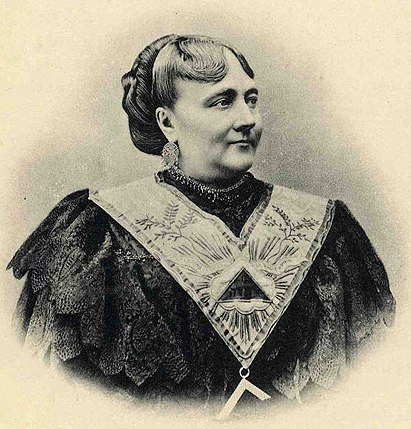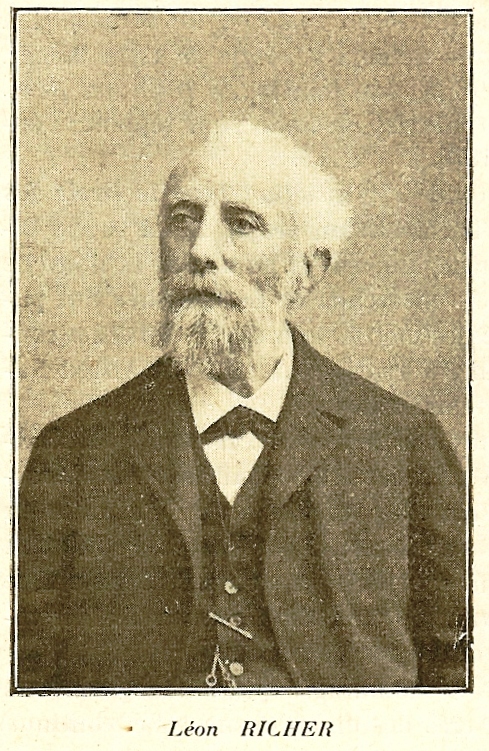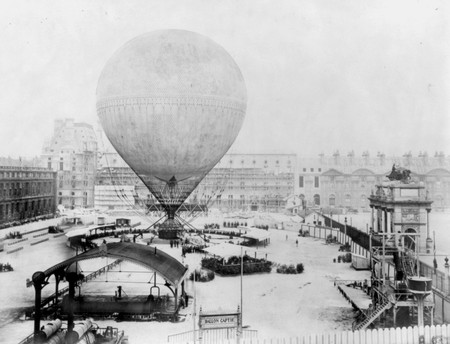1878 Women’s Rights Conference
The Long History of Women’s Struggle for Equality
Equal pay for equal work, government subsidies for families, the politics of housework, and the double moral standard that exists for men and women -- these are all familiar topics of gender discussions today. But they were also central concerns for women at the first international women's rights congress in Paris more than a century ago.

Familiar Topics of Discussion
The organizers of the first international congress on women's rights convened their meeting to coincide with another historic event happening in Paris, the 1878 International Exposition, a world's fair which drew visitors and presentations from all over Europe, the British colonies and the United States.
As the public thrilled to demonstrations of new inventions like the telephone, the electric light and the phonograph, a group of dedicated feminists were planting the seeds of the first international movement to advance women's rights.
French feminists Leon Richer and Maria Deraismes, founders of the periodical Le Droit des femmes: Journal politique, scheduled the congress over a two-week period during the huge world's fair. Representatives from six different countries made up the host committee, including France, Switzerland, Italy, Holland, Russia and the United States. The gathering attracted a cluster of French dignitaries as well as politicians, journalists and delegates from 11 other nations.
Anna-Maria Mozzoni, founder of the Italian women's movement, gave the opening address. Other registered participants included Elisa Van Calcar of the Netherlands, Carl and Sophie Van Bergen from Sweden, and male participants from Brazil, Russia, and Romania. A cohort of Americans attended, including Julia Ward Howe from Boston, who was named honorary co-president, and Theodore Stanton, son of the eloquent suffrage activist Elizabeth Cady Stanton.
This congress marked a new stage in the development of a truly international network among feminist activists, cemented at the final banquet by Antide Martin's toast: "To the international perseverance of the partisans of progress!"
Controversies over Women's Vote
Congress organizers divided the agenda into five sections: historical, educational, economic, moral and legislative. They deliberately avoided discussion of woman suffrage but did address many other controversial topics, including government-regulated prostitution, unionization and the relation of war to women's subordination. The published proceedings of this first congress were widely distributed and can still be read with interest today.
The exclusion of voting from the 1878 congress agenda provoked objections, especially from the French contingent. Since the revolution in 1789, French women had pressed alongside men for representative government and political rights.
Hubertine Auclert, publisher of the monthlyDroit des Femmes, subsequently published the speech she was not allowed to give at the meeting. In this eloquent appeal she pointed to all the reasons why French women -- all nine million of them -- should be able to cast their ballots:
"The weapon of the vote will be for us, as it is for man, the only means of obtaining the reforms we desire. As long as we remain excluded from civic life, men will attend to their own interests rather than to ours."
She called on her fellow Frenchmen, to "abdicate [their] masculine kingship....Until you have recognized the complete right of women -- civil and political rights -- your struggle to obtain a greater liberty can appear to impartial witnesses and to us, the neglected half of humanity, only as a quarrel between despotisms."
A Permanent Committee Is Formed
The conference ended with the announcement of a permanent international committee and a grand banquet attended by approximately 200 guests. As Theodore Stanton describes in his History of Woman Suffrage, "The chief duties of this committee were to be the advancement of the reforms demanded by the congress and to issue the call for the next international gathering."
Emily Venturi summed up the committee's ambitious agenda with this anecdote at the closing banquet:
"Last evening a gentleman who seemed a bit skeptical about the advantages of our Congress asked me, ‘Well, Madame, what great truth have you proclaimed to the world?' I replied to him, ‘Monsieur, we have proclaimed that woman is a human being.' He laughed. ‘But, Madame, that is a platitude.' So it is; but when this platitude, which everyone accepts with a smile when it is merely a question of words, is recognized by human laws, the face of the world will be transformed. Certainly, then, there would be no need for us to assemble in congress to demand the rights of woman."
To learn more about women whose political action have changed the course of history, please visit the I.M.O.W. blog Clio Talks Back.
Adapted from Karen Offen, European Feminisms 1700-1950: A Political History (Stanford University Press, 2000). Quotations from Congrès international du droit des femmes. Ouvert à Paris, le 25 juillet 1878, clos le 9 août suivant. Actes et Compte-rendu des séances plénières (Paris: Aug. Ghio, c. 1878), p. 195; "Discours de Madame Venturi," ibid., p. 202 ; and Hubertine Auclert, Le Droit politique des femmes, question qui n'est pas traitée au Congrès international des femmes (Paris, 1878). Translated in Women, the Family, and Freedom: The Debate in Documents, ed. Susan Groag Bell & Karen Offen (Stanford University Press, 1981), pp. 142, 515.



